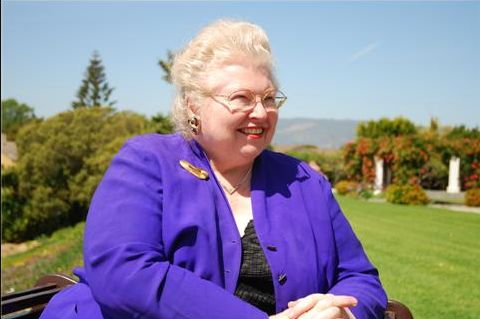Sarah Weddington, Then and Now
Barney chats with the lawyer who helped make Rov v. Wade a landmark case.
SENATOR CHISELER: You’ll recall that I recently wrote about how state Sen. Tom McClintock claims to represent the Santa Barbara area but actually lives full-time up near Sacramento. Has for years. (This, under California’s bizarre laws, is legal, if unethical.)
Now it turns out that McClintock, a fierce crusader against government waste, is collecting $170 a day through a per diem rake-off that was supposed to help offset expenses for legislators who live far from the Capitol, which McClintock doesn’t. (This too is legal, if not ethical.)

He’s been living with his family in Elk Grove-not in his “official” residence in Thousand Oaks, a senatorial district that includes Santa Barbara-but used this loophole to collect more than $300,000. Tax-free, of course.
Since the Santa Barbara News-Press is in love with McClintock, it has never reported this monkey business, and Santa Barbara voters were unaware of his financial sleight-of-hand.
Last year, McClintock also flew (at state expense) 14 times to Southern California, possibly to visit his mother, who lives in the Thousand Oaks home. Since he’s being termed out of the Legislature, he plans to run for Congress, where the fleecing of taxpayers is on a far grander scale. If you’ll recall, McClintock is running for Congress in a northern California district where he doesn’t even live. (This is legal, too.) Not surprisingly, his carpetbagging has elicited screams from other candidates.
SENATOR SCHWARZENEGGER? You may be wondering why the Gropin’ Governator is running all over the state, including hitting Santa Barbara about every other week, even though he’s being termed out. Well, according to those who follow politics, the GOP guv plans to go for U.S. Sen. Barbara Boxer’s seat in Congress-assuming he’s willing to wait until the 2010 election to oust the Dem. Schwartzy might prefer to run for president, but can’t because he wasn’t born in the U.S. of A. But who knows? Things might open up in the future.

SHE WON ROE V. WADE: When she faced the nine male justices, Sarah Weddington was just 26, the youngest person ever to argue a case before the U.S. Supreme Court. In a landmark decision announced January 22, 1973, those justices voted 7-2 to invalidate all laws anywhere in the nation that made abortion illegal.
(Abortion was already legal in California due to a law signed in 1967 by then-Gov. Ronald Reagan, who later, while president, opposed Roe v. Wade.)
“If anybody had said to me, ‘You will still be talking about this in 35 years,’ I would never have believed that,” Weddington told me the other day, sitting on Betty Stephens’s sunny Hope Ranch patio.
She predicts that it will be one of the key 2008 presidential campaign issues, along with the war and the economy. The question hovers: Will Roe v. Wade be overturned now that the court seems to have a majority, or near majority, to do so? But it’s not in jeopardy this year, because no relevant case is poised to come before the Supreme Court in 2008, she said.
Weddington, who still lives in Austin, Texas, believes that at least one justice is likely to retire in the next four years, giving whoever is president a key appointment to the court.
The Republican presidential nominee-apparent, Sen. John McCain, is anti-choice, while Democratic contenders Hillary Clinton and Barack Obama are pro-choice.
Was this beautiful young lawyer frightened when she faced the justices? “Scared? Of course. If you’re not scared, you’re not sensible.”
Opponents of Roe v. Wade have objected that the decision lacked a solid Constitutional basis. In recent years, the then-anonymous “Roe,” Norma McCorvey, made a turnabout and joined the anti-abortion movement. She moved to reopen the case but a court refused, saying that her new position on the question was moot.
Weddington, a University of Texas law school graduate, was elected to the Texas legislature in late 1972 and was sitting in her office a few weeks later when the New York Times called with the astonishing news that she’d won Roe v. Wade.
Weddington was reelected three times before leaving to become the first female general counsel for the U.S. Department of Agriculture under former president Jimmy Carter. “I did a lot of work trying to save wild and scenic rivers,” she said. Then she went to the White House as an assistant to the president. “Then Carter lost and we left.”
Looking back, the soft-spoken Weddington said, “It was a time when women were challenging restrictions and opening opportunities. I was part of that generation. Women couldn’t even get credit cards in their own names. At the University of Texas [in the mid 1960s], the policy was that no woman could be given birth control unless it was within six weeks of a wedding date.”
Weddington wrote a 1992 book about the case: A Question of Choice: The Lawyer Who Won Roe v. Wade. These days she spends her time lecturing and teaching at the U of Texas.



